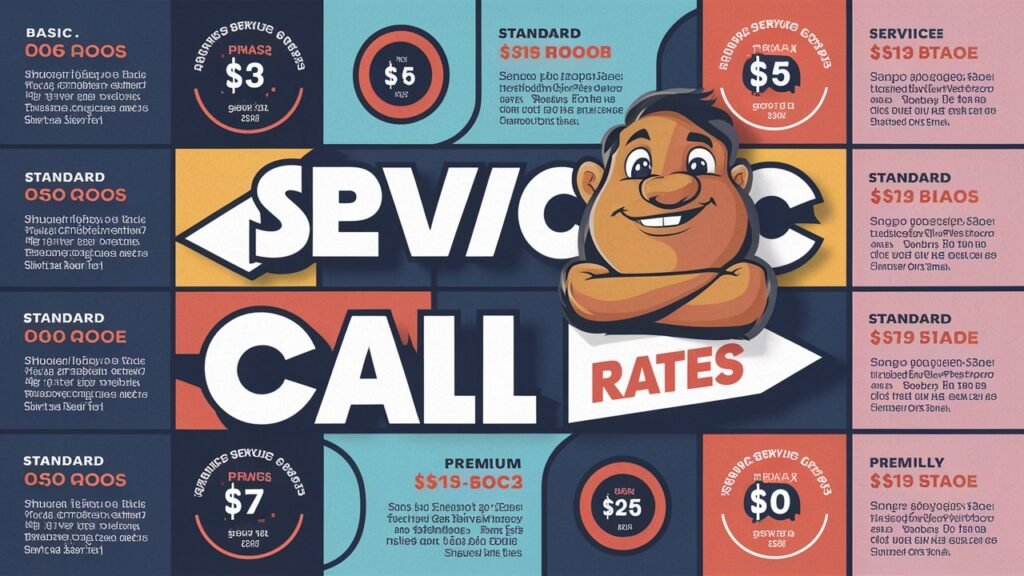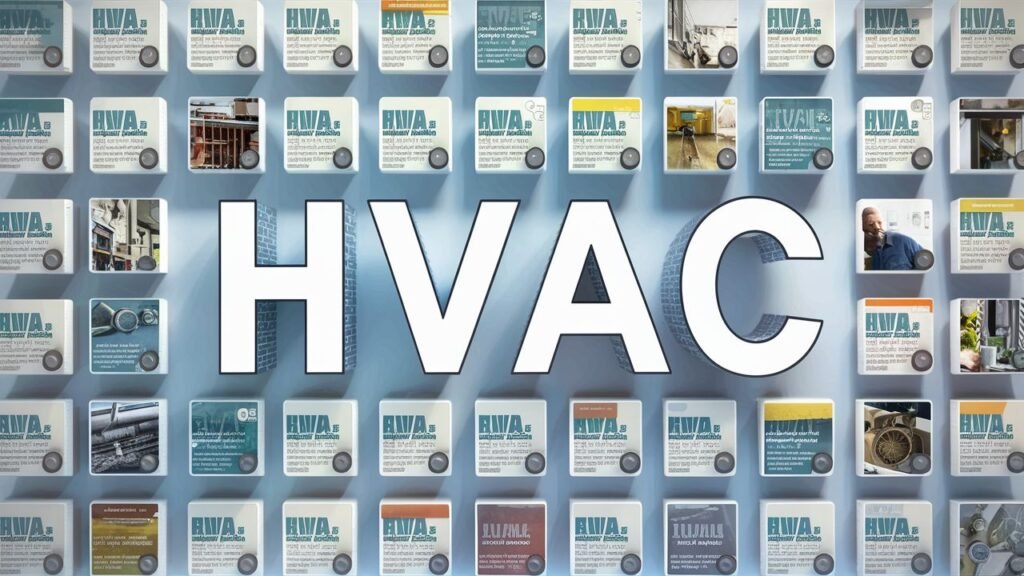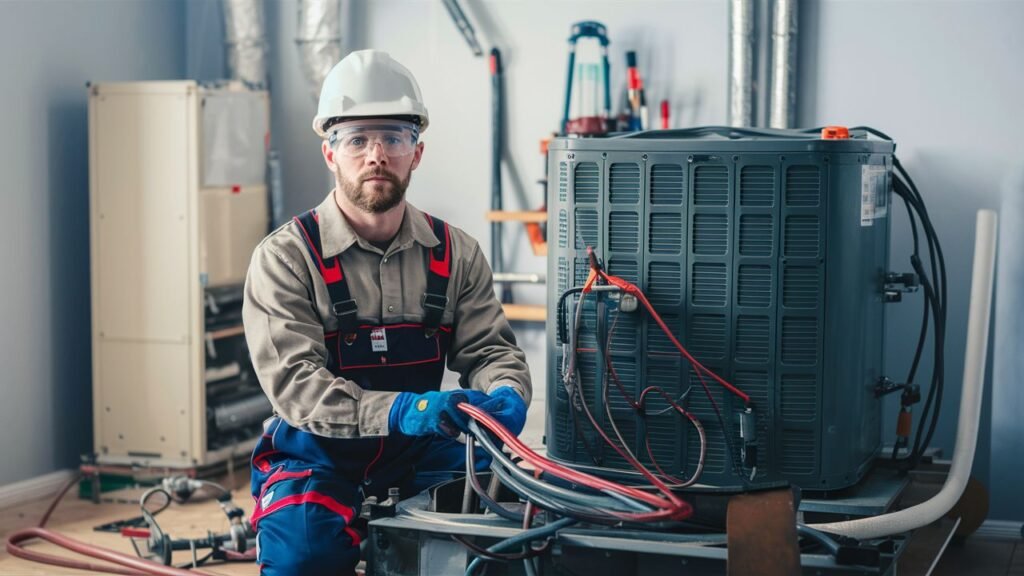When your heating, ventilation, and air exertion( HVAC) system breaks down, understanding the costs associated with service calls can help you make informed opinions. This companion explores the factors impacting HVAC service call rates, what to anticipate during a service call, and tips for keeping costs manageable.

What Are HVAC Service Call Rates?
HVAC service call rates are the freights charged by HVAC professionals for visiting your home to diagnose and repair your system. This figure generally covers the technician’s time, trip charges, and original assessment of the problem. still, it may not include the cost of the corridor or fresh labor needed to complete the form.
Factors of Service Call Rates
1. Basic Fee: The initial charge is just for the technician to come to your location.
2. Diagnostic Fee: The cost of identifying the problem with your HVAC system.
3. Labor Charges: Fees for the actual repair work, often calculated on an hourly basis.
4. Parts and Materials: Costs for any components that need replacement.
Factors Affecting HVAC Service Call Rates
Several variables can impact how important you will pay for an HVAC service call. Understanding these factors can help you better estimate your costs.
Seasonal Demand
The demand for HVAC services can change with the seasons. For case, rates might be advanced during summer and downtime when systems are used most heavily.
Type of Service needed
Routine conservation generally costs less than exigency repairs. The complexity of the form also plays a significant part in determining the final cost.
Geographic Location
Service call rates can vary depending on where you live. Civic areas with an advanced cost of living tend to have higher rates than pastoral areas.
Average HVAC Service Call Rates
To give you a general idea, HVAC service call rates generally range from 75 to 200. This range can vary extensively grounded on the factors mentioned above. Let’s break down some average costs
For routine check-ups
you might anticipate to pay between$ 75 and$ 150. This service ensures your system is running efficiently and can help help major repairs down the line.
Emergency Repairs
Emergency repairs, especially during off-hours, can be significantly more expensive. Rates for emergency services can start at $150 and go up to $300 or more.
Specific Repairs
The cost for specific repairs will depend on the part and labor required. For example, replacing a blower motor can cost between $400 and $1,500, while fixing a refrigerant leak might run between $200 and $1,000.
What to Expect During an HVAC Service Call
Knowing what to expect can help you feel more prepared and ensure the process goes smoothly.
Initial Assessment
The technician will start with a thorough inspection of your HVAC system to diagnose the issue. This includes checking for common problems like refrigerant leaks, faulty wiring, or malfunctioning thermostats.
Discussion of Findings
After the initial assessment, the technician will explain the problem and provide an estimate for the repair. This estimate should include parts, labor, and any additional fees.
Performing the Repair
Once you approve the estimate, the technician will proceed with the repair. Depending on the complexity, this can take anywhere from a few minutes to several hours.
Final Check and Payment
After completing the repair, the technician will perform a final check to ensure everything is working correctly. You’ll then receive an invoice detailing the services provided and the total cost.
Tips for Managing HVAC Service Call Costs
While HVAC service calls are sometimes unavoidable, there are ways to manage and potentially reduce the costs.
Regular Maintenance
Investing in regular maintenance can help prevent costly emergency repairs. Schedule annual check-ups to keep your system in top condition.
Compare Quotes
Don’t hesitate to get multiple quotes for non-emergency repairs. Comparing prices from different companies can help you find the best deal.
Service Contracts
Many HVAC companies offer service contracts that include regular maintenance and discounted rates on repairs. These contracts can be a cost-effective way to manage your HVAC system.
DIY Basics
Some basic maintenance tasks, such as changing air filters and cleaning vents, can be done by homeowners. This can help reduce the need for professional service calls.

Choosing the Right HVAC Professional
Selecting a reputable HVAC professional is crucial to ensuring quality service and fair pricing.
Check Credentials
Ensure the technician is licensed and certified. This indicates they have the necessary training and expertise to handle your HVAC system.
Read Reviews
Customer reviews can provide insight into the reliability and quality of a company’s services. Look for consistently positive feedback.
Ask for Recommendations
Personal recommendations from friends, family, or neighbors can be invaluable. They can direct you to trustworthy professionals with whom they’ve had positive experiences.
Conclusion
Understanding HVAC service call rates and the factors that influence them can help you make informed decisions and avoid unexpected expenses. Regular maintenance, comparing quotes, and choosing the right professional are key steps to managing these costs effectively. By staying proactive, you can ensure your HVAC system runs smoothly and efficiently, keeping your home comfortable year-round.
By following these guidelines and taking a proactive approach to your HVAC maintenance and repair needs, you can better manage service call costs and maintain a comfortable, efficient home environment.


